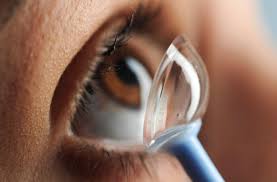Contact lenses have become a popular alternative to traditional glasses, offering convenience and versatility to fit a wide range of lifestyles. Selecting the right contact lens solution to maintain cleanliness and comfort is equally key. With numerous options available, understanding your contact lenses’ needs is foundational for facilitating safe and comfortable use. By breaking this process into clear sections, this guide provides a logical foundation for choosing a solution tailored to your needs.
Who Are Contact Lenses For?
Contact lenses are a suitable vision correction option for individuals across various age groups and lifestyles. Whether you are someone with nearsightedness, farsightedness, or astigmatism, contacts offer corrective options for most refractive errors. They may be chosen by individuals with active lifestyles who find glasses inconvenient during activities, such as sports or outdoor adventures. Contacts can serve people seeking an aesthetic alternative to glasses or individuals participating in professions where glasses may interfere with work, such as performers or athletes.
What Are the Different Types of Lenses?
Contact lenses come in a variety of designs, materials, and wear schedules. The type of lens you use often determines which solution will work best for you, as different lenses have unique upkeep requirements. Below are the most common types of contacts available:
Soft Contact Lenses
Soft contacts are highly flexible. They are typically disposable and include options that range from daily to monthly lenses. These lenses are popular for their ease of use but require proper care to maintain cleanliness and hydration during extended wear periods.
Rigid Gas Permeable (RGP) Contact Lenses
RGP lenses are more durable and resistant to eye-produced deposits compared to soft lenses. They offer precise vision correction and may be less expensive than soft lenses. These lenses require specific storage and cleaning solutions.
Specialty Lenses
These include scleral lenses, hybrid lenses, and orthokeratology lenses. Specialty lenses are tailored for specific vision correction needs that traditional lenses may be insufficient for treating. Their unique design and material composition often demand specialized solutions to maintain their integrity.
How Do You Pick the Right One for You?
Selecting the appropriate contact lens solution involves understanding your lens type, your eye condition, and your lifestyle requirements. Below, we outline the factors and options to keep in mind:
- Multipurpose Solutions: Multipurpose solutions are widely used due to their versatility. These all-in-one solutions clean, rinse, disinfect, and store soft lenses.
- Hydrogen Peroxide-Based Solutions: Hydrogen peroxide-based solutions are often recommended for users prone to sensitivity or allergic reactions to multipurpose solutions.
- Saline Solutions: Saline solutions are used primarily for rinsing and storing lenses rather than disinfecting them. They work well in conjunction with separate cleaning systems.
- RGP Solutions: If you wear rigid gas permeable lenses, you’ll need a solution specifically formulated for their unique materials. RGP-specific solutions will clean, disinfect, and recondition the lenses, helping to maintain their hard surface and comfort.
Conferring With an Eye Specialist
Choosing a contact lens and solution involves multiple factors, from matching lens type to lifestyle preferences and eye-related needs. An eye specialist will give personalized recommendations based on your prescription, eye health, and habits. They can also help you understand specific handling and cleaning techniques for your lenses, facilitating optimal comfort and safety.

